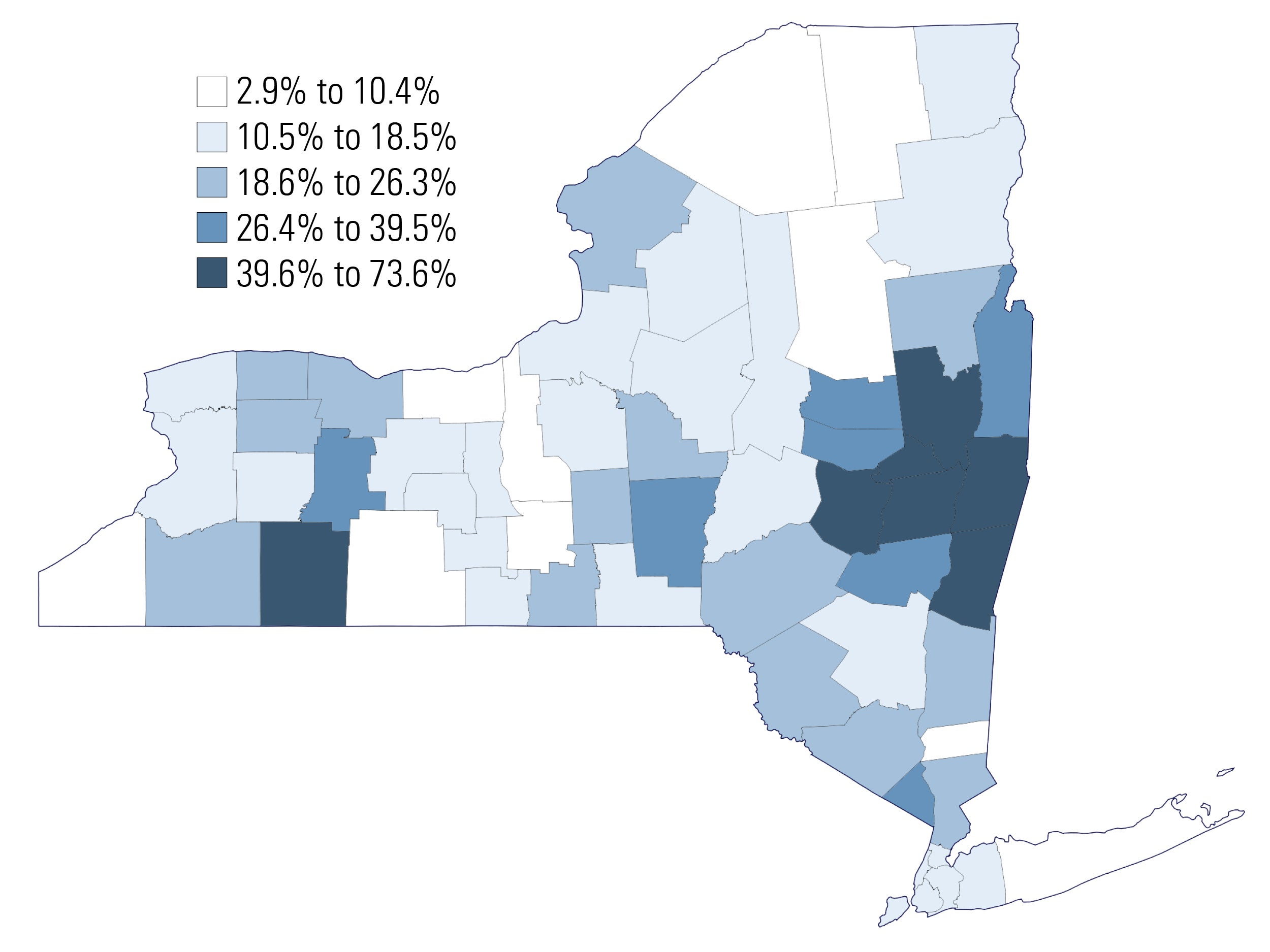Financing
-
What’s next for CHIP?
With both the House and Senate committees of jurisdiction reporting out CHIP bills last week, what needs to happen next to get CHIP done? Students of Schoolhouse Rock know that it’s very difficult for a bill to become a law – there are many steps that have to be taken. And while it’s a good…
-
New Report Documents Growing Role CHIP Plays in Lives of Kids Across NY State, Underscores Need to Continue Funding
The September 30 expiration of federal CHIP funding puts the New York program, Child Health Plus (CHP) in a precarious situation. Data from the new UHF HealthWatch brief, The Curve Bends Back Up, Sharply, suggests that CHP is growing in its importance – which means insurance coverage is at risk for more New York children…
-
CHIP is Moving Ahead But Will Congress Get to the Finish Line in Time?
Late last night House Republicans released text of their bill (the Healthy Kids Act) to extend funding for the Children’s Health Insurance Program (CHIP), and they are proceeding rapidly to mark up tomorrow in the Energy and Commerce Committee. The Senate Finance Committee is also marking up their bill, the KIDS Act, tomorrow. The very…
-
The Medicaid Cap: Still a Terrible Idea for Children and Families
The Senate Majority Leader has announced his intention to take up the Graham-Cassidy proposal next week. The proposal has lots of moving parts. None of them are kid- or family-friendly. And one of them—the cap on federal Medicaid payments to states—is not only very unfriendly, but it will last forever. The cap first emerged in…
-
Children Would Fall Through Cracks if Graham-Cassidy Becomes Law
There’s much ado in the news today about what the “Graham-Cassidy” plan does with respect to CHIP. Two impacts of Graham-Cassidy on CHIP are very clear. First, by cutting Medicaid, Graham-Cassidy would undermine the foundation upon which CHIP sits. Medicaid covers four times as many children as CHIP, so cutting Medicaid by imposing a per-capita…
-
Positive Development for CHIP Emerges from Senate Finance Committee Leaders
Yesterday I blogged about the urgent need for Congress to take bipartisan action to extend CHIP funding before it expires on September 30. The Senate only has 10 legislative days left before the deadline, and the House only has five! Yikes! Almost nine million children have their coverage provided for or funded at least in part…
-
Will Congress Act in Time to Keep CHIP Coverage in Place for Kids?
Last month, we celebrated the 20th anniversary of CHIP – an acronym that needs no explanation to readers of Say Ahhh! Over the years, CHIP’s high profile and strong bipartisan popularity has played a significant role in advancing children’s coverage, along with earlier expansions of Medicaid to the most vulnerable children. CHIP spurred states to…
-
Shielding Children from the Rising Costs of Prescription Drugs
Consider three different drugs that are used by children. Amoxicillin is an inexpensive antibiotic that might be prescribed when a child has an ear infection. Typically, this generic drug would cost between $5 and $15 for a one-time prescription. Antibiotics are the most common type of drug used by children under age 6. EpiPen is…
-
Recent Research Shows Disparities in Health Care Access Reduced After The ACA
We know that access to health care is correlated with many demographic and socioeconomic characteristics. The Affordable Care Act, through the Medicaid expansion and the marketplace, extended coverage to uninsured populations with the hope of reducing disparities in access to health care. After the first couple of years of the insurance expansions, research shows that…
-
Lots of Questions but Few Answers: NAIC’s 2017 Summer Meeting
Originally posted on CHIRblog. For those who follow the fate of the Affordable Care Act marketplaces, it’s hard to escape the daily reports of the status of federal funding for cost-sharing reductions(CSR), the subsidies that lower out-of-pocket costs for low-income marketplace enrollees. The Trump administration won’t commit to funding the reimbursements to insurers for the rest of 2017…
-
No Way to Run a Railroad
The bill unveiled by the Senate leadership last week will cap the federal contribution to Medicaid, shifting large and ever-increasing costs to states and providers and children and families in perpetuity. That much is clear. What is less well understood is that at the same time the bill transfers costs to the states, it transfers…
-
Don’t Be Fooled by the Optics
The Senate Leadership has released a new version of a “repeal and replace” bill that may be considered by the full Senate next week. The new bill contains a few tweaks of the Medicaid provisions in the prior version, but these don’t fix the fundamental flaw in the bill for children and families: the cap…
-
Medicaid Cap: A Bad Deal that Gets Worse Over Time
As we’ve explained, the Senate Leadership bill to “repeal and replace” the ACA includes a cap on federal Medicaid payments to states with two budget dials: a limit on annual growth and a separate reduction for states that spend more on their Medicaid beneficiaries. These dials are designed to lower federal spending, and it turns…
-
Fitch Report: Proposed Medicaid Cuts Could Impact States’ Credit Ratings
Medicaid is more than simply the nation’s largest health insurer for children. It’s also the largest source of federal funds to states. The Better Care Reconciliation Act (BCRA) bill that stalled in the Senate earlier this week would cut federal payments to states by $772 billion over the next 10 years and establish a platform for the…
-
Doubling Down on Dialing Down on Children
Last Thursday, the Senate Leadership released a draft bill to “repeal and replace” the Affordable Care Act. The draft is even worse for the 37 million children that Medicaid covers and the providers who serve them than the bill that narrowly passed the House. Not only would the draft dial down the federal payments to…
-
Fact Sheet: The Maintenance of Effort (MOE) Provision in the Affordable Care Act
The Affordable Care Act (ACA) included a “maintenance of effort” (MOE) provision that has ensured stability of coverage for children in Medicaid and CHIP, even as the rest of the U.S. healthcare system has seen significant change. The MOE—along with coverage expansions for parents and other adults in Medicaid and the Marketplaces – has helped…
-
Five Myths about the Medicaid Cap
The White House and the House Leadership are hoping to bring a bill to “repeal and replace” the Affordable Care Act (ACA) to the House floor for a vote this week. The bill contains a new section allowing states to waive ACA consumer protections relating to health insurance. It also contains the same cap on…
-
Proposed Medicaid Spending Caps Rely on Data Points That Don’t Exist Yet
There were few details in the recent CBO score on the American Health Care Act (AHCA) as to how the $880 billion in cuts to Medicaid were calculated and where the pain will be felt. That’s because the folks at CBO, like the rest of us, are scratching their heads over where to access the…
-
7 Questions Congress Should Answer Before Messing with Medicaid
Ok, all you Schoolhouse Rock fans, let’s sing along: “I’m just a Bill. Yes, I’m only a Bill. And I’m sitting here on Capitol Hill. Well, it’s a long, long journey to the Capital City It’s a long, long wait while I’m sitting in committee.” That was true in 1976, when Bill made his debut.…
-
CHIR Expert Testifies Before the House Committee on Small Business Regarding Enhancements to the ACA
By Emily Curran and Dania Palanker, originally posted on CHIRblog On February 7, the House Committee on Small Business held a hearing titled, “Reimagining the Health Care Marketplace for America’s Small Businesses,” to discuss the challenges small businesses are facing in the health insurance marketplaces and to offer potential solutions for the next phase of…



















